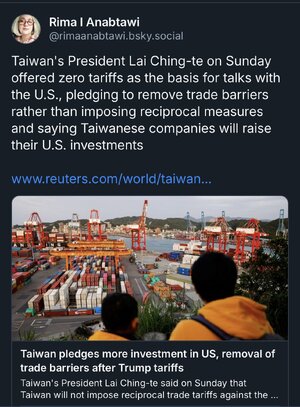HintonJamesHeel
Esteemed Member
- Messages
- 727
Impeach!
Follow along with the video below to see how to install our site as a web app on your home screen.
Note: This feature may not be available in some browsers.
What a moron.

If we get another 5% drop tomorrow, I may start to go into knife catching mode. My theory is that Trump will cave eventually no matter how tough he talks right now.Early trading shows another catastrophic day for the US markets tomorrow.
Predictions of a recession come with 500k to 3M in job losses.
Manufacturing isn't returning to the US overnight and if it does it's not the savior the turd thinks it is.
Trump's economic plan comes from and advisor that made up a fictional character in his book to support his stupid tariff position.
God dang can you wake up?
There going to have to increase SS to bail out everyone who's life savings is being fucked by the stupidest president of all time and the cult is parroting fox propaganda like it's fact.
Wonder if stupid old man rock will shot a few cases of crappy beer in protest?Okay that's it. I'm officially mad!
Yea, but how long does it take to recover?If we get another 5% drop tomorrow, I may start to go into knife catching mode. My theory is that Trump will cave eventually no matter how tough he talks right now.
Who knows, but I have a fairly long investing horizon. I bought a lot of stock in Feb-March 2020 and I was more than willing to wait for that to rebound (which happened fairly quickly).Yea, but how long does it take to recover?
And no other country is going to trust us until this idiot is gone, so who's to say they will remove their tariffs?
I'm buying at 25.Dow could open below 37K
Not getting to 25. If Dow gets to 25, better start buying supplies at patriot.com.I'm buying at 25.
